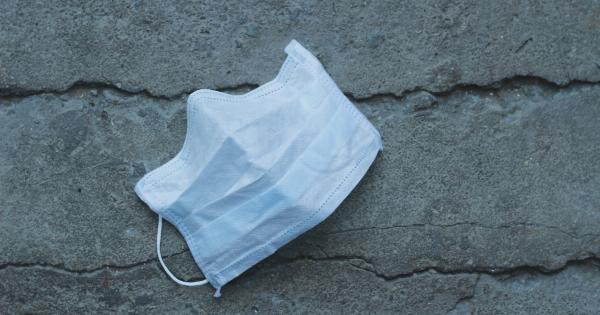Visiting the bathroom is a natural bodily function that every person must do multiple times a day.
The frequency of bathroom visits can vary from person to person and can also be influenced by various factors such as age, health conditions, and lifestyle habits. In this article, we will explore the average number of times people visit the bathroom in a day and discuss some of the factors that can affect this.
The Average Frequency of Bathroom Visits
On average, most people visit the bathroom to empty their bladders about 6-7 times a day. However, it is important to note that this number can vary widely. Some individuals may visit the bathroom more frequently, while others may do so less often.
One of the primary factors that affect the frequency of bathroom visits is the amount of fluid a person consumes. The more fluids you drink, the more frequently you will need to empty your bladder.
Other factors include the types of fluids consumed (such as beverages with diuretic properties like coffee or alcohol) and the overall size and capacity of an individual’s bladder.
Age can also play a role in the frequency of bathroom visits. Young children often have smaller bladders and less bladder control, resulting in more frequent bathroom trips than adults.
Similarly, older adults may also experience more frequent bathroom visits due to age-related changes in bladder function and the increased likelihood of medical conditions such as urinary incontinence or an overactive bladder.
Influence of Health Conditions
Various health conditions can affect the frequency of bathroom visits. For example, individuals with urinary tract infections (UTIs) may experience a sudden and frequent urge to urinate, often accompanied by pain or discomfort.
People with diabetes may also need to visit the bathroom more frequently as high blood sugar levels can increase urine production.
Furthermore, certain medications and medical treatments can impact bathroom frequency.
For example, diuretic medications, which are commonly prescribed to treat conditions like hypertension, can increase urine production and result in more frequent trips to the bathroom. Similarly, undergoing radiation therapy or chemotherapy can also cause increased bathroom visits due to the impact of these treatments on the gastrointestinal system.
Lifestyle Factors
Lifestyle factors can also influence the number of times a person visits the bathroom in a day.
People who consume large amounts of caffeine or alcohol may experience more frequent bathroom trips as both substances act as diuretics, increasing urine production. Similarly, certain foods and beverages high in water content, such as fruits and vegetables, can also contribute to increased bathroom visits due to their water content.
Additionally, individuals who engage in regular physical exercise may find themselves visiting the bathroom more frequently. Physical activity increases blood flow and can stimulate increased urine production, leading to more bathroom trips.
It is important to stay hydrated during exercise, which can also contribute to increased fluid intake and subsequent bathroom visits.
Tips for Managing Bathroom Trips
If you find yourself visiting the bathroom more frequently than desired, there are strategies you can try to manage this:.
- Monitor fluid intake: Pay attention to how much fluid you are consuming, particularly beverages with diuretic properties. Adjust your intake accordingly to manage the frequency of bathroom visits.
- Bladder training: Practice techniques such as scheduled voiding or delayed urination to gradually increase the amount of time between bathroom visits.
- Seek medical advice: If you are concerned about the frequency of your bathroom visits or experiencing other related symptoms, it is always recommended to consult with a healthcare professional. They can provide guidance and evaluate any underlying conditions that may be contributing to the issue.
- Strengthen pelvic floor muscles: For individuals experiencing issues such as urinary incontinence, performing pelvic floor exercises, also known as Kegel exercises, can help improve bladder control and reduce the frequency of bathroom trips.
- Manage dietary choices: Some foods and beverages, such as spicy foods or artificial sweeteners, can irritate the bladder and increase the urge to urinate. Identifying and avoiding trigger foods can help manage bathroom visits.
- Practice good bathroom habits: It can be helpful to empty your bladder completely when visiting the bathroom to reduce the need for frequent return trips. Relaxing and taking your time can ensure a more thorough emptying.
Conclusion
Visiting the bathroom is an essential bodily function, and the average number of times a person visits the bathroom in a day can vary.
Factors such as fluid intake, age, health conditions, and lifestyle choices can all influence the frequency of bathroom visits. Monitoring fluid intake, practicing bladder training techniques, and seeking medical advice when needed can help manage bathroom trips and ensure optimal bladder health.






























